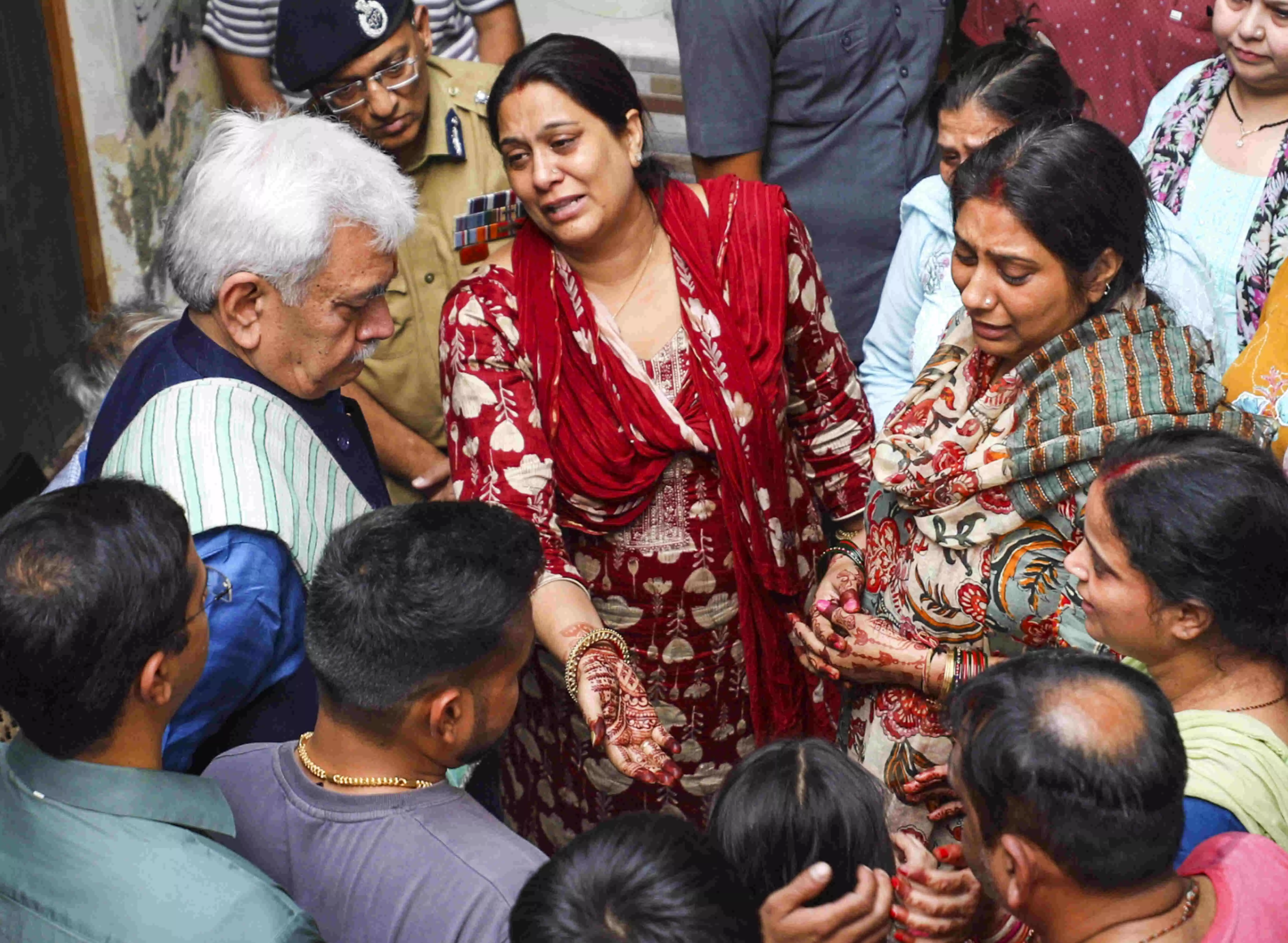Unacceptable terror

The cowardly act of terror, claimed by The Resistance Front, has killed seven individuals—including a doctor and six construction workers—in the Ganderbal district of Jammu and Kashmir. The incident has crossed the limits of sanity and obscenity. Almost all the deceased belonged to the lowest ladder of socio-economic status, having no inclination to any ideology whatsoever. They were just there to feed their family by the end of the day. Such a dastardly act of terror is intolerable. It is a reminder that the endorsement of terrorism—even if it comes from militants—should have no place in the present-day scenario.
The fresh attack is the deadliest assault on civilians in the region since the June 9 incident in Reasi, where nine pilgrims were killed as their bus fell into a valley following gunfire from terrorists. Following each case of terror incident, one is tempted to read into the timing of the crime and the intended message behind the same. The Ganderbal attack has come after the conclusion of much-awaited Jammu & Kashmir assembly elections, wherein one of the local parties of the region—the National Conference—has formed the government. In the intervening period since the abrogation of the Article 370, the Centre-ruling BJP has been seriously trying to redefine infrastructure development and promote employment opportunities for the locals, perhaps in a bid to compensate for the lost liberties since 2019. Now that democracy has paved the way for the return of normalcy in the region with the revival of regional politics, the militants, it is clear, have different plans. Their ill-conceived notions now stand exposed—they are not for the people, peace and progress. They have their own nefarious agenda, which appears dictated by the designs of hardcore Pakistan-sponsored terrorists. Their acts are intolerable, their crimes unforgivable.
One cannot afford to overlook the recent spate of terror attacks in the region, mostly following a new pattern. The deadly assault in Ganderbal was claimed by The Resistance Front (TRF), a Pakistan-backed militant group. Extremists are intensifying their efforts to destabilise Jammu and Kashmir, particularly targeting non-locals and those contributing to the region's development. Historically, large infrastructure projects were seldom targeted. However, the fact that terrorists chose to strike at a construction site this time reveals their desperation. With each milestone of development, the region moves closer to normalcy—something that terror outfits like TRF cannot afford. By attacking the pillars of progress, they are sending a message: they fear development, they fear integration, and above all, they fear peace. Formed in the aftermath of the abrogation of Article 370, the TRF has rapidly grown into a significant player in the terror landscape of Kashmir. Backed by Pakistan and formed as a proxy for Lashkar-e-Taiba (LeT), the group has been responsible for a string of attacks aimed at creating chaos and disrupting efforts at peacebuilding. What makes TRF particularly dangerous is its attempt to mask itself as a local resistance movement, distancing its image from global jihadist organisations like LeT. Yet, its tactics and motives remain identical—to perpetuate violence under the guise of resistance.
Kashmir has endured decades of terror, but each such attack only strengthens the resolve of its people. As National Conference leader Farooq Abdullah pointed out, ‘Kashmir Pakistan nahi banega’ (Kashmir will not become Pakistan). The overwhelming sentiment in the Valley is one of resilience. These terrorist groups will certainly not succeed in breaking the spirit of the Kashmiri people or halting progress. However, the tragedy in Ganderbal reminds us that the fight against terrorism is far from over. Security forces have a mammoth task ahead as they continue to track down the perpetrators. Yet, the solution must go beyond military might. Pakistan must be held accountable on the international stage for its continued sponsorship of terror.



